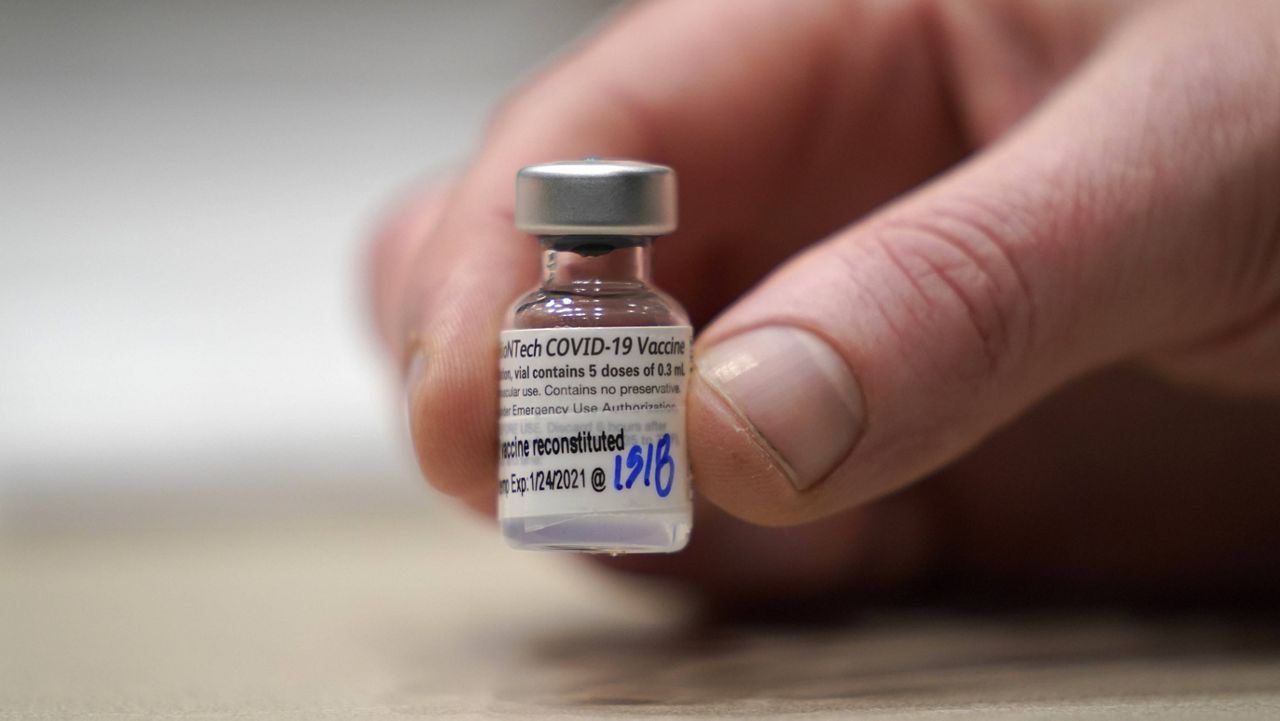The Centers for Disease Control and Prevention (CDC) announced that they will now recommend the use of Pfizer and BioNTech's COVID-19 vaccine in children 12 to 15 years old, making about 17 million more Americans eligible for inoculation.
What You Need To Know
- The CDC's advisory board voted to recommend the Pfizer-BioNTech COVID-19 vaccine for children 12 to 15 years old on Wednesday
- CDC director Dr. Rochelle Walensky approved the panel's guidance, allowing vaccinations to begin
- Some children are eager to get vaccinated, saying they are ready to return normalcy and doing the things they love
- A Kaiser Family Foundation poll, however, found that only 30% of parents with kids who are 12-15 would get them vaccinated immediately
"Today, I adopted CDC's Advisory Committee on Immunization Practices' (ACIP) recommendation that endorsed the safety and effectiveness of the Pfizer-BioNTech COVID-19 vaccine and its use in 12- through 15-year-old adolescents," CDC Director Dr. Rochelle Walensky said in a statement.
The move clears the way for vaccinations to begin immediately.
"CDC now recommends that this vaccine be used among this population, and providers may begin vaccinating them right away," Walensky said.
Dr. Walensky accepted the recommendation of an independent CDC panel, which voted 14-0, with one recusal, to recommend the vaccination in the adolescent age group.
The CDC’s Advisory Committee on Immunization Practices reviewed clinical trial data during a meeting Wednesday two days after the Food and Drug Administration authorized the two-shot Pfizer vaccine for ages 12 to 15. Pfizer’s shots have been authorized for ages 16 and older since December.
Health officials say children must be vaccinated to reach the 70% to 85% needed to reach herd immunity, the point where so many people are immune that the coronavirus has little opportunity to spread.
“I am encouraging all parents to get their children vaccinated,” Dr. Walensky said during a Senate hearing Tuesday. “Some parents won’t want to be first, but I’m also encouraging children to ask for the vaccine. I have a 16-year-old myself, and I can tell you he wanted to get the vaccine. He wants his life back. These kids want to go back to school. They want to go back to the things they love.”
A handful of local governments, including in Arkansas, Delaware, Georgia and Pennsylvania, didn’t wait for the OK from the CDC panel and began administering the vaccine to 12- to 15-year-olds Tuesday.
“Under all relevant legal authority, once the FDA gives approval, a prescriber is permitted to prescribe the vaccine,” Kelly Cofrancisco, a spokesperson for Pennsylvania's Montgomery County.
Pfizer and BioNTech reported that its Phase 3 clinical trial of 2,260 children ages 12 to 15 showed no new cases of COVID-19, compared to 18 in the placebo group.
Kids had side effects similar to young adults, the companies said. The main side effects are pain, fever, chills and fatigue, particularly after the second dose.
Fifteen-year-old Elizabeth Goluszka, who lives in suburban Chicago, is ready. For more than a year, she and her friends have celebrated birthdays and holidays at a distance. The teenagers left gifts outside each other's homes as a replacement for the parties they planned and then canceled as the pandemic wore on. Elizabeth said she also missed dance competitions and chatting with friends over lunch at Batavia High School.
“I’m just so looking forward to getting back to a sort of normal high school experience, like having the homecoming dance and being able to have lunch with friends,” she said.
Many parents, however, aren’t so eager.
A Kaiser Family Foundation poll found that 30% of parents with kids who are 12-15 would get them vaccinated immediately, 26% would wait a while, 18% would only do it if required, and 23% would definitely not get their child vaccinated.
"Some parents have already made plans for their adolescents to receive a COVID-19 vaccine," Dr. Walensky said. "Understandably, some parents want more information before their children receive a vaccine."
"I encourage parents with questions to talk to your child’s healthcare provider or your family doctor to learn more about the vaccine," she continued. "And if your adolescent is behind on routinely recommended vaccines due to the pandemic or for other reasons, now would be a good time to work with your child’s nurse or doctor to make sure they get caught up."
Indianapolis parent Inna Ekhaus said it was a “no-brainer” for her and her husband to get vaccinated to curb the spread of COVID-19 and to protect themselves. But after doing a risk-benefit analysis, she does not plan to take the couple's two sons, ages 13 and 10, to get inoculated.
Ekhaus said her boys, who are otherwise healthy, got COVID-19 in October and reported only minor symptoms.
“For the kids, I don’t think the due diligence has been done to show the long-term effects, and children’s bodies are still developing,” said the 38-year-old tech worker.
Dr. Peter Marks, director of the Center for Biologics Evaluation and Research at the FDA, sought to ease parents’ concerns at Tuesday’s Senate hearing.
“Parents and guardians can rest assured that the agency undertook a rigorous and thorough review of all available scientific data as we have with all of our COVID-19 vaccine authorizations and the CDC’s Advisory Committee on Immunization Practices will next review the data [Wednesday],” he said.
Pfizer and other vaccine makers are continuing to conduct trials on children with the hope of making shots available to kids as young as 6 months old by this fall.
The Associated Press contributed to this report.



